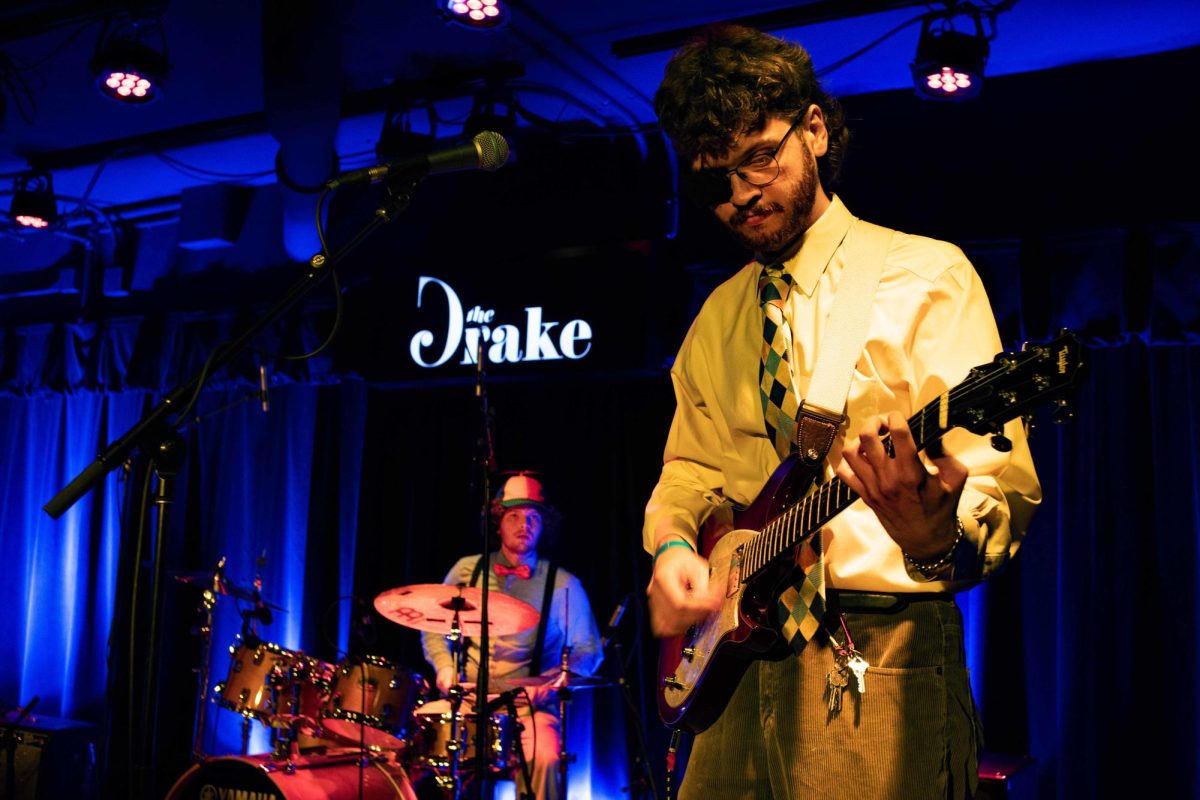
Indie rock’s golden child Ben Gibbard has released his first proper solo album, titled “Former Lives.” After 15 years of repackaging the same sound through a series of strikingly similar Death Cab for Cutie albums, Gibbard is finally branching out. “Former Lives” proves that the melancholy singer is more than just a one trick pony.
The album is a high-quality collection of poppy emo tracks. Though this may not sound like anything new for Gibbard, “Former Lives” is truly the most interesting thing to come out of his musical career in nearly a decade.
Gibbard’s sound as a solo artist is not hugely different from Death Cab’s. In fact, he could have easily released “Former Lives” under his band’s name instead of his own. Still, the record illuminates an evolution in Gibbard’s songwriting – and Gibbard has not made this kind of progress on any album since Death Cab for Cutie’s “Transantlanticism.”
One thing made clear by “Former Lives” is the amount of influence Gibbard has absorbed from some early pioneers of emo music. Many of the songs on “Former Lives” seem to borrow elements from the late Elliott Smith, whose former collaborator Aaron Espinoza helped produce the album. Smith’s ghost emerges right away on tracks like “Dream Song” and “Lily,” due mostly to Gibbard’s similar guitar style.
Infectiously catchy pop melodies carry listeners through tracks like “Teardrop Windows” and “Oh, Woe” – both songs that are reminiscent of new-wave artists like The Smiths. Gibbard’s vocal melodies are simultaneously bright and somber, both alive and dead. Morrissey himself would be proud.
Not every track on “Former Lives” helps Gibbard break new ground, however. “Bigger Than Love,” which features guest vocals from Aimee Mann, could be seamlessly transplanted to any recent Death Cab for Cutie release. The song is characterized by Gibbard’s classic dull, murky sound and coated with that signature brand of heartwarming sentimentality Death Cab fans know and love.
“Lady Adelaide” is another track on “Former Lives” that highly resembles past Death Cab releases. The guitar style is typical of Gibbard’s ballads, bearing some resemblance to songs like “A Lack of Color.” Fortunately, “Lady Adelaide” is not burdened by these similarities. Instead, the rich poetry and clever composition make this track a highlight of the album.
Unlike “Bigger Than Love” and “Lady Adelaide,” tracks like “Something’s Rattling” and “Broken Yoke in Western Sky” give Gibbard an opportunity to strongly diverge from what has become his typical sound. “Something’s Rattling” sways delicately, boldly walking on the outskirts of mariachi. “Broken Yoke” provides some country twang with an airy Hawaiian guitar. These new elements to Gibbard’s songwriting style are beautifully executed and wonderfully refreshing.
Sadly, “Duncan, Where Have You Gone?” is a song so bland it could easily turn listeners off to what the rest of the album has to offer. The track is obnoxiously soothing and frustratingly intangible. It is lucky that “Duncan” – arguably Gibbard’s worst song to date – was inconspicuously tucked away in the middle of the record, where it will be easily lost and inevitably forgotten.
Aside from the monstrosity that is “Duncan,” “Former Lives” is a substantial and refreshing release. Nearly every song on the album is persistently catchy, without falling into the superficiality that pervades so much of today’s popular music.
The record closes with a short ballad called “I’m Building a Fire.” Heavy white noise envelops the lo-fi recording, relinquishing some of Gibbard’s waning indie cred. Soft, sweeping guitar chords emerge from the static like a seed beginning to sprout. With any luck, “Former Lives” will represent the beginning of a bold new chapter in Ben Gibbard’s career as a songwriter.
Gibbard will perform at the Somerville Theatre in Somerville. on Nov. 4.
Chris Trubac can be reached at [email protected].












